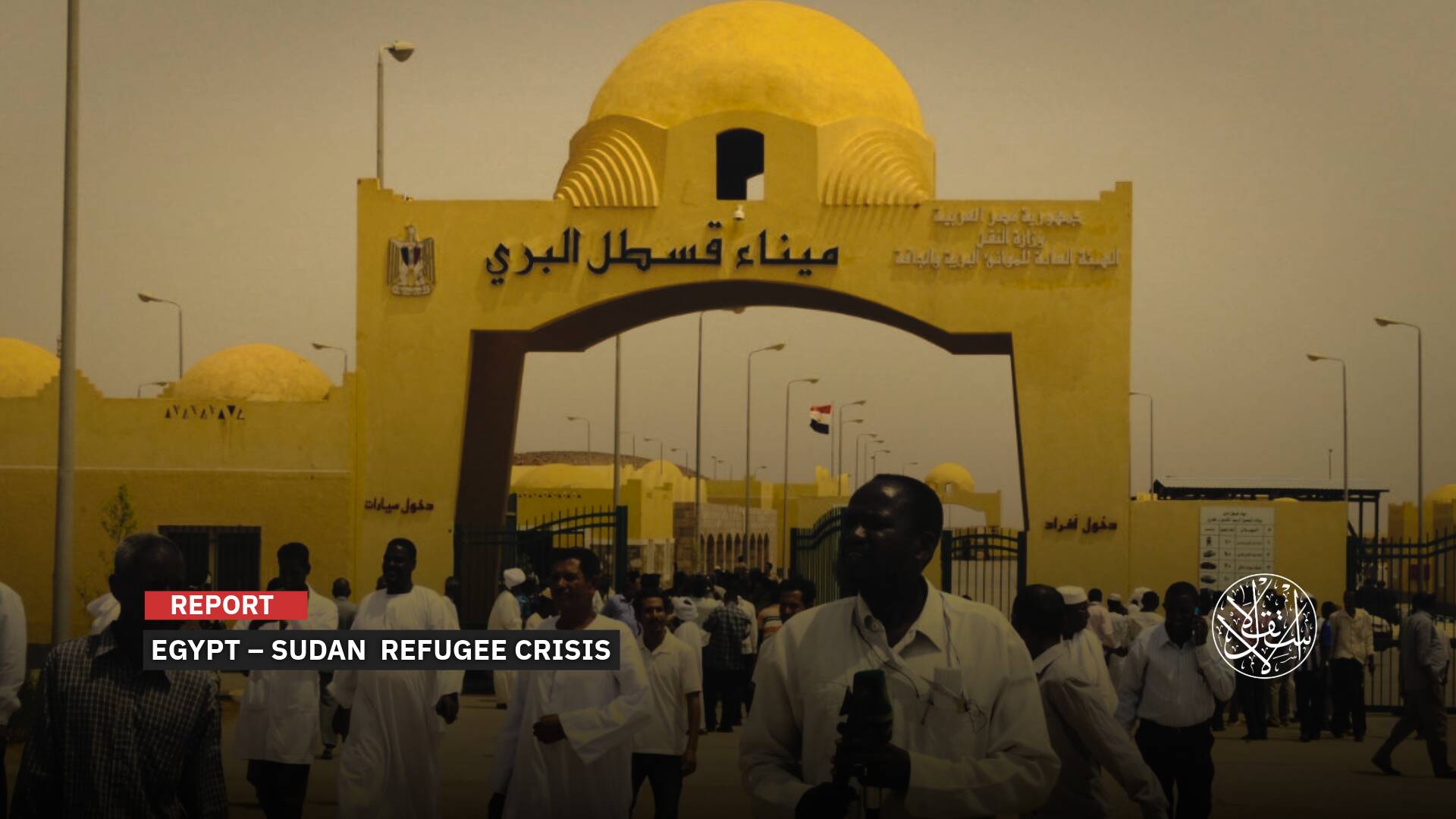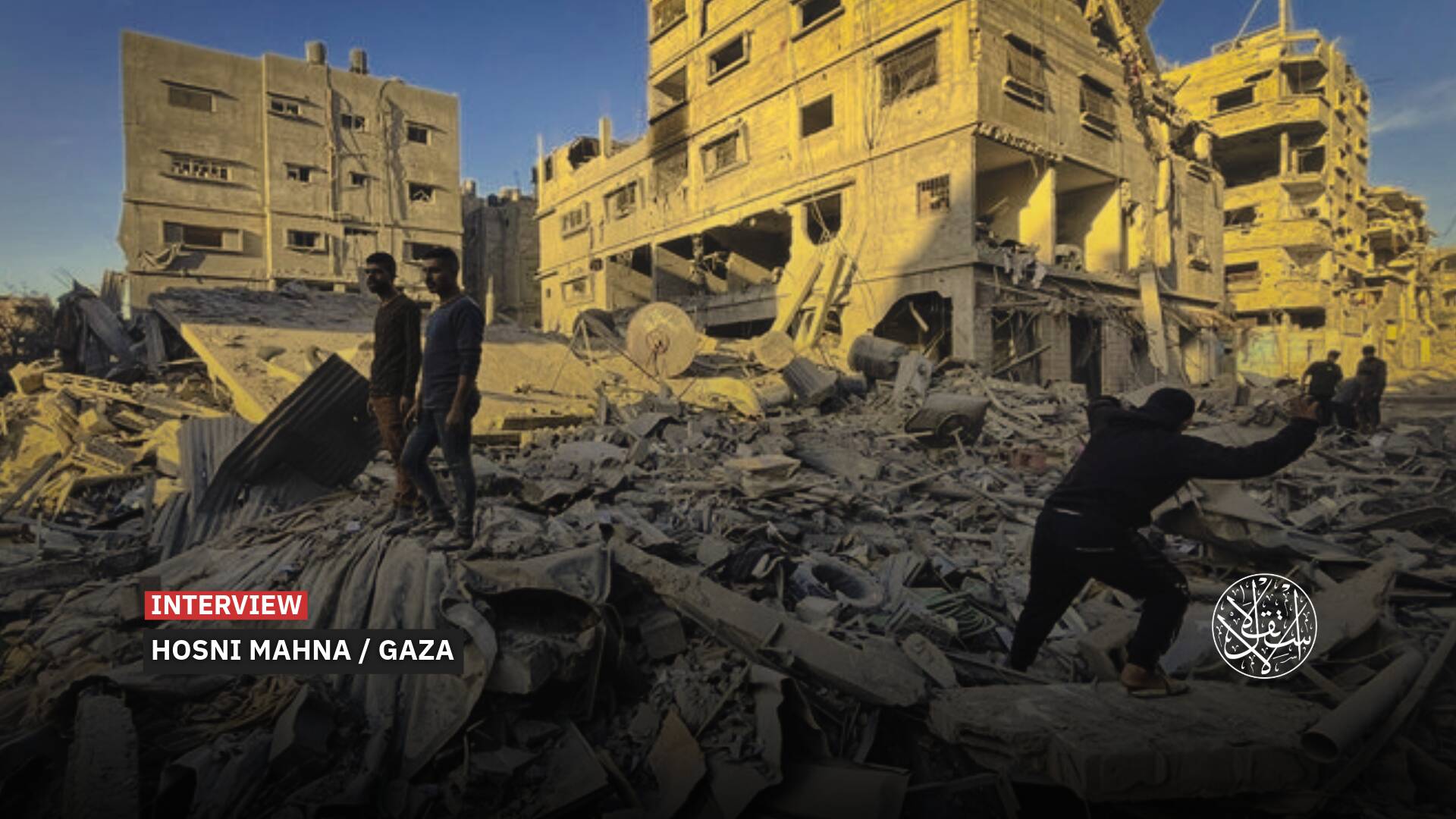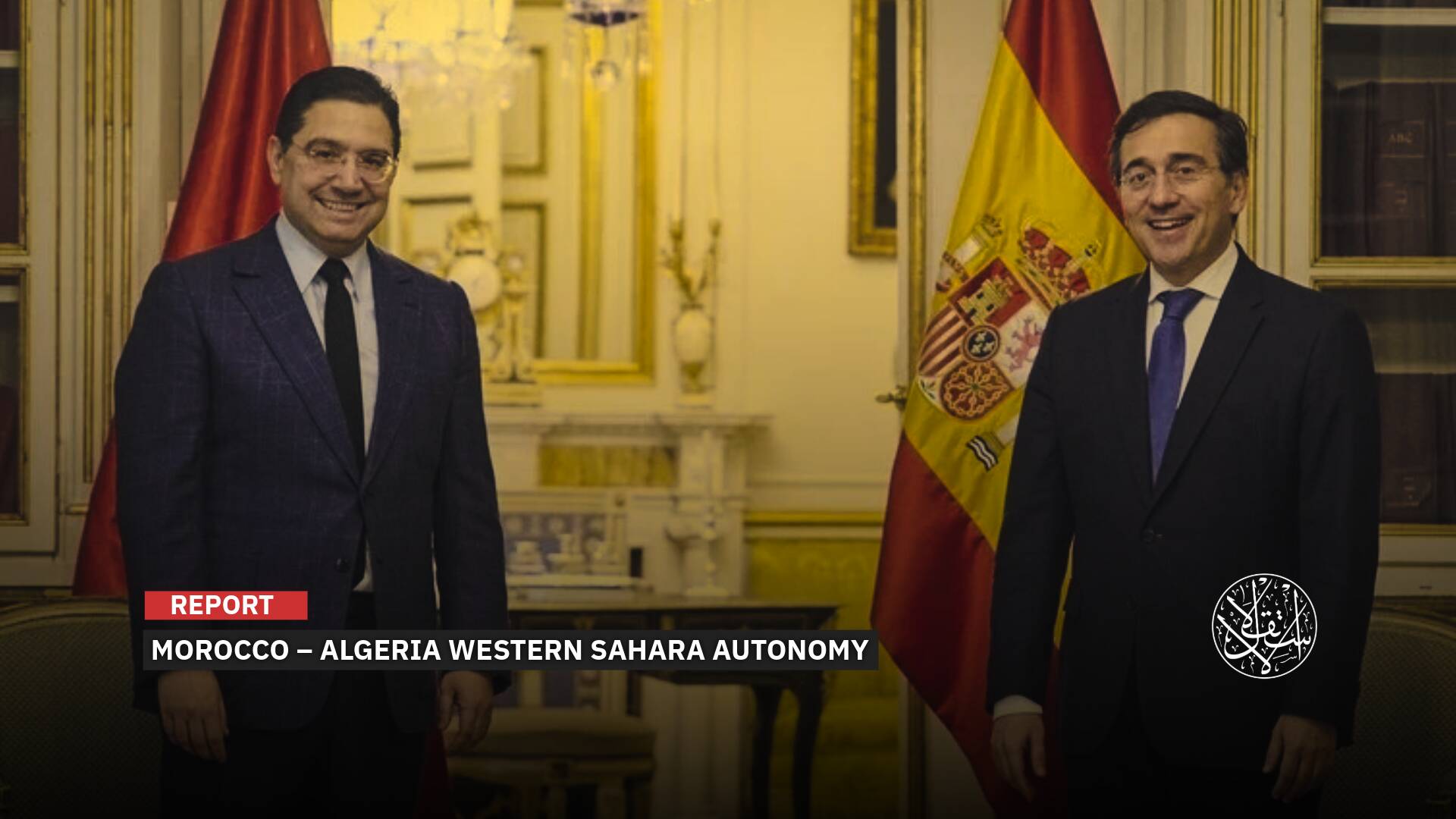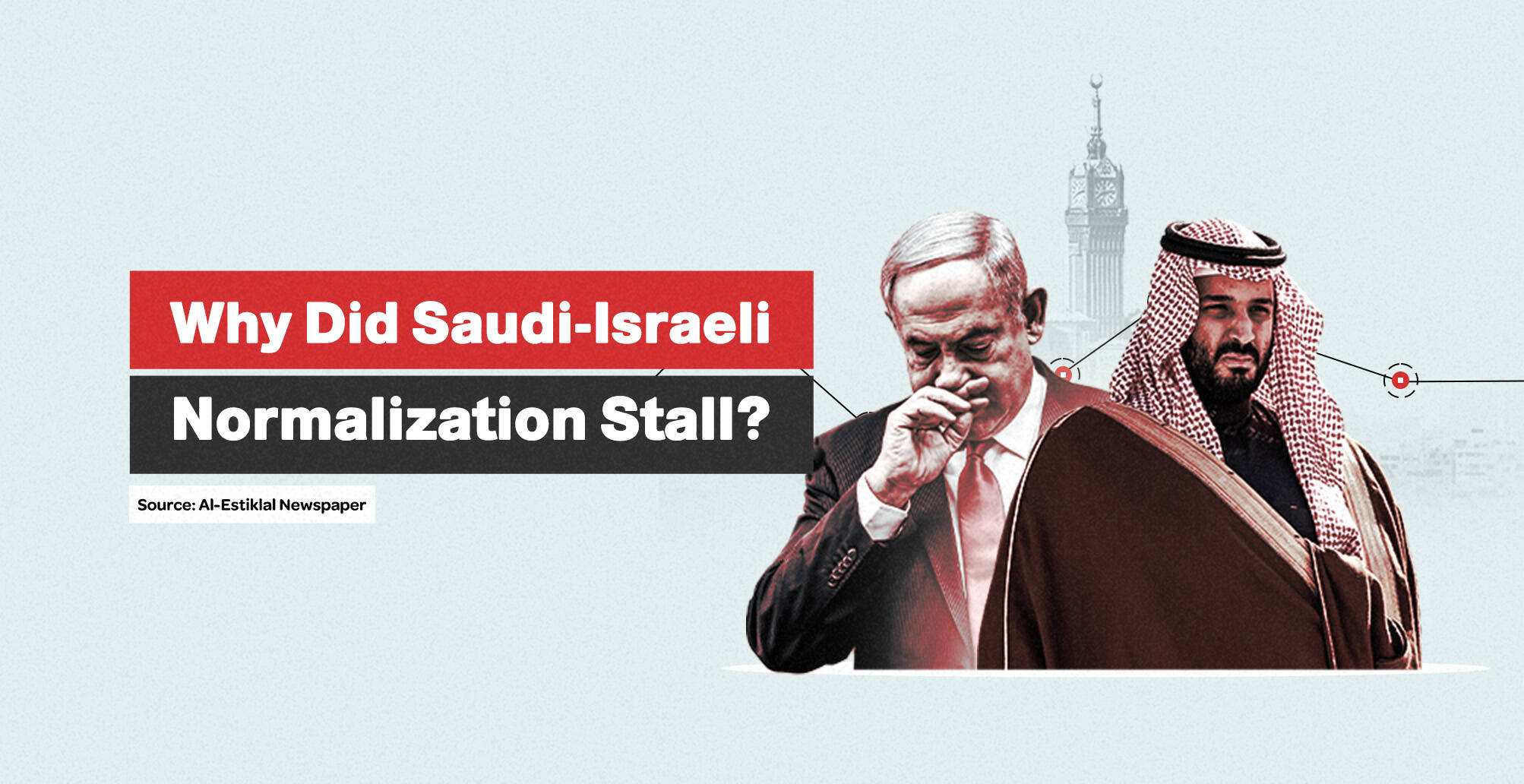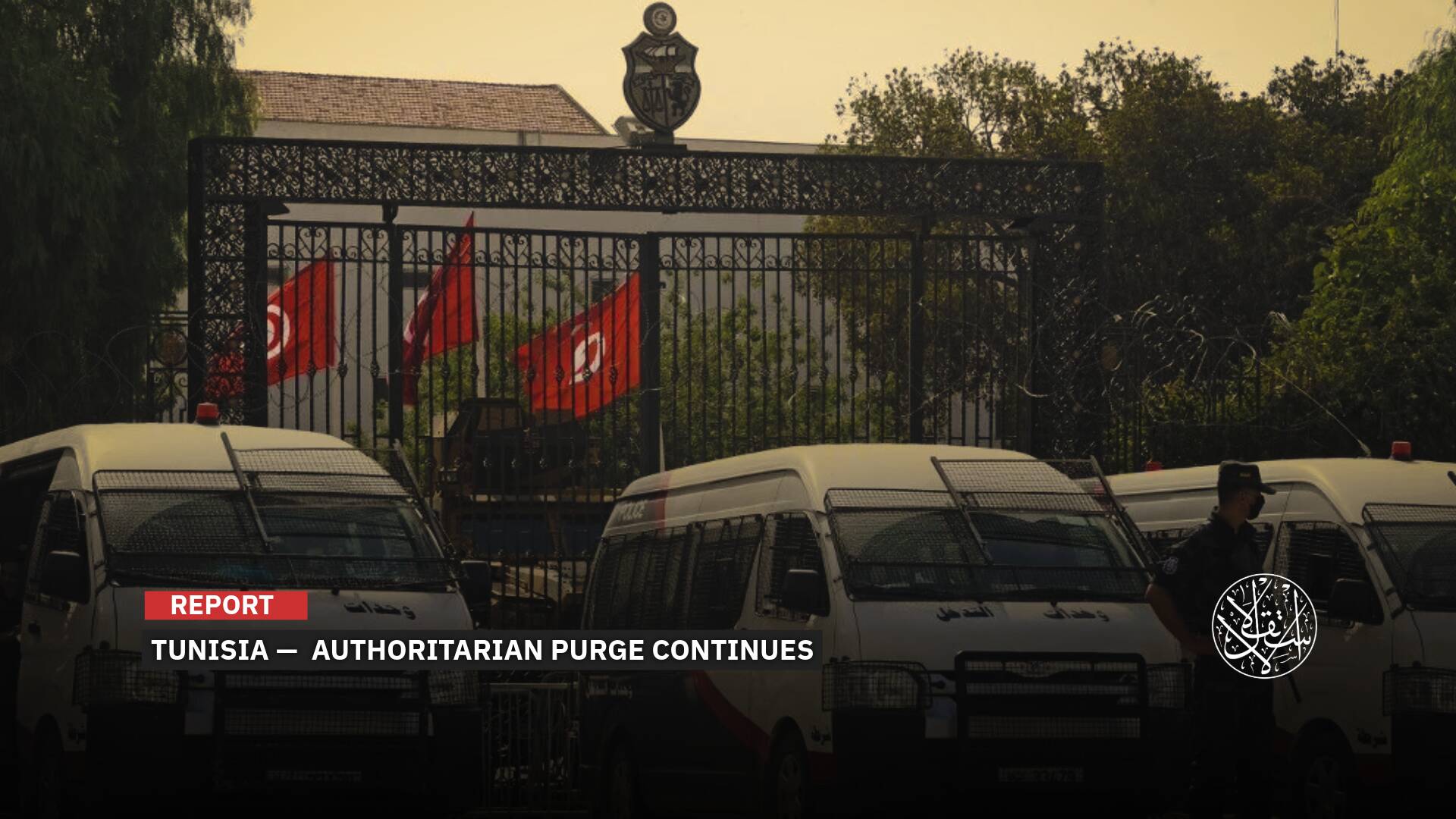After ‘Israel’ Disrupts Rafah Business, Where Did al-Arjani Relocate the Army Generals' Trade?

Al-Arjani is frequently seen alongside Sisi these days.
Ibrahim al-Arjani, a man of the Sinai tribes who transformed from a rebellious detainee in Egyptian prisons to the el-Sisi regime’s favorite businessman, keeps appearing in headlines with enigmatic investment deals inside and outside Egypt.
He officially appeared in western Libya under the guise of business and projects, with a delegation from Egyptian intelligence visiting the head of the Government of National Unity, Abdul Hamid Dbeibeh, on May 17, 2023, to discuss projects being implemented by Egypt in Libya.

He reappeared suspiciously with Belgassim Haftar, the son of the UAE-backed Libyan militia leader Khalifa Haftar, engaging in new business ventures in eastern Libya, involving security arrangements across the Egyptian-Libyan border.
The relocation of the "Gaza broker" to Libya and the expansion of the Egyptian army's project network across borders raises questions about the objective: is it merely business, or does it include security arrangements, coordinating Haftar and al-Arjani in securing land ports along the borders (Mesaieed and Salloum)?
Al-Arjani mysteriously established the Union of Arab Tribes, extending his influence from Sinai to all tribal areas in Egypt, north, south, east, and west, including border areas with Libya, after becoming an official arm of the authority.

Gaza's Alternative
When “Israel” disrupted al-Arjani and the army's operations by occupying and destroying the Rafah crossing, it also halted the lucrative business dealings of al-Arjani and the head of the Egyptian regime el-Sisi, which profited from the suffering of Palestinians through the Hala company, as was uncovered previously by Al-Estiklal.
This company reportedly earned around $30 million monthly from Palestinians in Egypt, according to Sky News in early March 2024. Consequently, the al-Argani-Generals business shifted focus to Libya and other border areas in Egypt.
The companies Abnaa Sinai and Hala, which played crucial roles in extorting Palestinian travelers from Gaza to Egypt via Rafah crossing arrangements for fees ranging between $5,000 and $12,000 per person, ceased operations after the Israeli occupation of Rafah on May 7, 2024.
The formation of the Union of Arab Tribes in Egypt in early May 2024, just before the Israeli occupation of the Rafah crossing, has raised concerns about its goals and the potential for it to become a parallel entity to the state, particularly since some member tribes are armed.
However, the shift of al-Arjani's business from Gaza to Libya revealed benefits and potential reasons for founding this union, despite speculations of freezing its activities on May 22 following public backlash and reports of "disputes" and criticism within the army.
Le Monde reported that the Bedouin leader Ibrahim al-Arjani, who monopolized the profitable entry and exit trade from Gaza, was promoted to head a tribal union responsible for securing the country's borders.
On May 24, 2024, it was confirmed that since Israeli tanks and soldiers took over the Rafah border crossing between Gaza and Sinai, al-Arjani's business with Gaza was disrupted, and the company lost millions of dollars, possibly seeking compensation through other border points.
This expansion of al-Arjani's control and influence to border areas occurred after he became the head of the Union of Arab Tribes, extending beyond Sinai.
MP and journalist, Mostafa Bakry, the spokesman for al-Arjani's Union of Arab Tribes, exacerbated the situation by affirming the union's role in border areas, tasks primarily assigned to the armed forces and police, raising further questions about the union's real objectives.
The agreements signed by Belgassim Haftar, son of Libyan General Haftar and head of the Libya Stability and Reconstruction Fund, on July 7, 2024, with Ibrahim al-Arjani, Chairman of the Abnaa Sinai Company, indicated the expansion of this business from southern Egypt to its west under the patronage of al-Argani and the military.
Belgassim Haftar signed contracts with al-Arjani's company for six projects, including the construction of six new bridges in Derna and two bridges in Ajdabiya.
These projects aim to reconstruct areas in Derna and cities in the Green Mountain region that were devastated by the infamous hurricane in September 2023, and to build several overpasses and roads to replace those destroyed.
In January 2024, al-Arjani appeared with former Minister of Transport Hani Dahi in Derna to sign contracts for establishing bridges as part of the city's reconstruction plan, which is controlled by Haftar's militia. The Emirati company Global Contracting is also participating in this project.
Al-Arjani's influence extends beyond Egypt. At the beginning of 2024, his Neom Real estate Development Co. secured contracts to undertake several projects for the Libya Reconstruction Fund in Derna, which is fully funded by the UAE.
These recent agreements and their timing cannot be separated from the disruption of business in Gaza and the attempt to compensate for it in Libya.
However, what is new is that they might include a security aspect related to managing the border crossings between Egypt and Libya, apart from the investment agreements, according to Libyan sources.
The writer Ahmad Omariy hinted at this security aspect on X, asserting that al-Arjani is not much different from Belgassim, Haftar's son, who oversees the reconstruction in eastern Libya and represents the leadership of Haftar's army.
He confirmed that the matter would not remain limited to investment and economic coordination.
“Al-Arjani is also needed to manage these deals from a security perspective, similar to his role in Gaza, by controlling the land crossings between the two countries (Mesaieed) and (Salloum), thereby extending his influence over these areas,” Omariy explained.
Al-Arjani's business in Libya is also believed to be linked to the competition between Haftar and Dbeibeh to strengthen ties with Egypt amidst their internal conflict. Both parties have signed reconstruction contracts with Egypt, with al-Arjani involved.
While Prime Minister Libya Dbeibeh promised to resolve the electricity crisis and invest in Egypt, exploiting the regime's economic woes, Haftar and his sons sought to gain more political and security support by improving relations with the Egyptian regime through economic cooperation.
The Dbeibeh government offered Egypt assistance in solving its electricity problems. On July 4, 2024, Dbeibeh discussed providing the necessary support to Egypt in the field of electricity with Egypt's Prime Minister Mostafa Madbouly in Cairo, according to the Libyan News Agency (LANA).
Egyptian and Libyan sources told Al-Estiklal that "mutual interests" of an economic and political nature forced this Egyptian welcome of Dbeibeh after a three-year hiatus, primarily due to the Libyan Prime Minister's offer of solutions to end the blackouts embarrassing Sisi's regime.
This prompted Haftar to support reconstruction projects in eastern Libya and Derna through Egyptian military-affiliated companies, like those of al-Arjani, to strengthen his partnership with Sisi's regime after a period of delay due to lack of funding.
External Expansion
Beyond his economic activities within Egypt, al-Arjani's business has expanded in recent years to foreign countries, notably the UAE, Libya, Saudi Arabia, and Qatar, alongside his role in Gaza.
In November 2022, al-Arjani became a partner and agent for BMW and Mini Cooper in Egypt, with Kuwaiti (Ali Alghanim & Sons) and Saudi (Mohamed Yousuf Naghi Motors) alliances, forming the Global Auto Group.
In 2023, al-Arjani allied with UAE's Worldwide Consultancy and Singapore's Bernard Harrison through his companies Abnaa Sinai and Hadaieq to develop the Giza Zoo.
The Emirati company received a five-year contract for managing the zoo, while the Singaporean firm got the design contract, and Abnaa Sinai handled the construction work.
Al-Arjani's company Abnaa Sinai has a branch in Dubai, UAE, and an official presence in Saudi Arabia.
Through his Neom Real Estate Development, al-Arjani secured contracts for several projects under the Libya Reconstruction Fund in Derna, fully funded by the UAE, supporting the rebel Khalifa Haftar and his son Belgassim.
On May 24, 2024, al-Arjani Group and Qatari Diar Real Estate Investment Company signed a strategic partnership to implement the City Gate project in Cairo's Fifth Settlement, a residential tower at St. Regis Hotel, and hotel projects in Sharm el-Sheikh and Hurghada.
One of al-Arjani's partners is Saudi automotive giant Mohamed Yousuf Naghi, Chairman of the Jeddah Chamber of Commerce.
The Times described al-Arjani on April 29, 2024, as part of Saudi Arabia's Vision 2030 under Crown Prince Mohammed bin Salman.
Al-Arjani owns nine companies: Abnaa Sinai Trading and Contracting, Abnaa Sinai for Construction and Building, Egypt Sinai for Industrial Development and Investment, Neom Real Estate Development, Aetos, Hala Consulting and Tourism Services, Sinai Elkheer, Al-Arjani Real Estate Development, and EGY MIX.
These groups employ about 1,000 staff, plus 3,200 workers and engineers, and execute over 450 projects.
Sudanese Business
It is notable that the border business of al-Arjani and his army general partners has extended to southern Egypt and the border area with Sudan after Cairo suspended visas for Sudanese in January 2024.
Unknown tourism companies named Zoolsfr started advertising quick security approvals for entry to Egypt available for Sudanese and other nationalities, secretly offering their prices to those interested, akin to the business model at Rafah Crossing.
This raises questions about whether these pages are related to Al-ArJani or other brokers. A tourism expert told Al-Estiklal that what these pages offer is the same as what Al-ArJani's company Hala used to do via websites, coordinating with Gaza residents for thousands of dollars.
Starting June 10, 2023, Egypt required all Sudanese nationals to obtain an entry visa.
Visas were issued only by the Egyptian Consulate in Port Sudan, which issued only 66 visas per month, averaging two per day, contributing to the spread of black market brokers facilitating visa issuance.
Sudanese sources revealed that the visa cost $1,000 per individual and $2,000 per family, in addition to skyrocketing flight prices from Port Sudan.
Due to the ongoing war in Sudan and Sudanese people's desire to quickly enter Egypt to escape, some turned to brokers or migrated through difficult desert routes in extreme heat, resulting in dozens dying from hunger and thirst, according to Sudanese newspapers.
Coinciding with these stricter measures for Sudanese nationals, the Egyptian regime's government announced on July 6, 2024, a final deadline until September 30, 2024, for all foreigners residing in Egypt without a visa to regularize their status and renew their residence permits.
It announced that legal action would be taken against non-Egyptians who did not obtain an exemption from the General Administration of Passports and Immigration, treating them as violators of residence regulations in the country.
Al-Arjani holds no political, parliamentary, or executive position. He was merely a former prisoner and trader accused of smuggling goods, weapons, and drugs. Yet, he now frequently appears alongside Sisi at conferences and events related to Sinai, moving with a convoy of 40 cars as if he were a head of state within the state.
Sisi attempted to give him an official role in January 2022 by appointing him as a board member of the National Agency for the Reconstruction of the Sinai Peninsula (a public economic authority under the presidency since its establishment in 2012, transferred to the army's jurisdiction in 2020).
Due to his close relationship with the regime, Sisi appointed former military intelligence chief in North Sinai, Major General Loay Zamzam, as deputy chairman of al-Arjani's group of companies, which includes eight companies operating in various fields.
The most prominent of these companies is Abnaa Sinai Construction, which monopolizes reconstruction work in Gaza under a $500 million contract and will undertake projects in Libya.

Additionally, al-Arjani's company, Egypt Sinai, in collaboration with the military, handles the export of goods and products to Gaza, generating substantial profits.
As further evidence of being a mere front for military business, Sisi's regime appointed two ministers to al-Arjani's companies. The first is former Housing Minister, Assem el-Gazzar, who moved from his ministerial position to become the Chairman of Neom Real Estate Development Company, also owned by al-Arjani.
This move violates the Conflict of Interest Law, which prohibits officials from holding positions in companies related to their previous work for six months.
As Chairman of Neom, el-Gazzar signed contracts in Eastern Libya with Belgassim Haftar, Director General of the Libya Development and Reconstruction Fund, to implement projects in Derna and the Jebel Akhdar (Green Mountain) cities.
The second is the current Minister of Public Enterprises, Mohamed Shimi, who had to resign as Chairman of Cadence Energy, a subsidiary of al-Arjani's group, following criticism on social media regarding overlapping responsibilities.
In recent months, Haftar’s sons have been appointed to key leadership roles in Eastern Libya, with three of the six sons advancing to prominent positions, raising speculation about their plans to expand their influence.
His youngest son, Saddam, was appointed head of his ground forces controlling the east and south, while his son Khaled was given wide-ranging authority over the security units within the "Libyan Army."
His other son, Belgassim Haftar, heads the Libya Reconstruction Fund, based on a decision by the Tobruk Parliament in February 2024, coordinating investments with al-Arjani and Egyptian generals.


